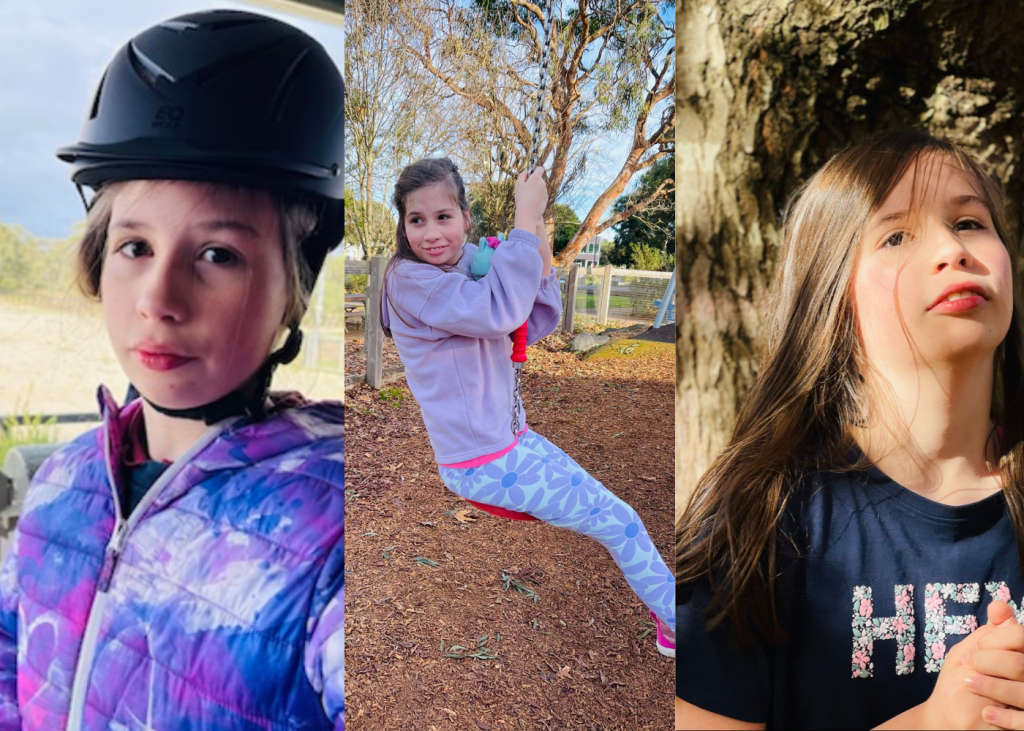SSADH (Succinic Semialdehyde Dehydrogenase Deficiency) affects around 400 people worldwide.
Source Mama, Jayde, shares her family’s story with us.
How did you first become aware that there might be a concern about your child’s health or development? What were the early signs that led you to seek a diagnosis?
Indi was our first baby, so we didn’t really know what to expect. We got concerned around the time she was 1 years old, she wasn’t babbling or making gestures and around 18 months she wasn’t walking or talking.
After seeing our MCHN at 18 months, we were referred to a paediatrician who requested further genetic testing to get a diagnosis. Looking back, the earliest signs were there as she had reflux, floppy neck/head, wouldn’t latch for breastfeeding and was often very sleepy.
Can you tell me a bit about the diagnosis your child received? What does it mean, and how does it affect your child’s life?
Indi received a diagnosis of an extremely rare genetic disorder called SSADH (Succinic Semialdehyde Dehydrogenase Deficiency). SSADH affects around 400 people worldwide.
It’s a neurometabolic disorder characterised by lack of one of two enzymes involved in the breakdown of GABA, the major inhibitory neurotransmitter in the brain. GABA controls the movements of humans, and when it is imbalanced, major neurological abnormalities occur. With SSADH, neurotransmitters in neurons are blocked from signalling one another correctly.
Due to the enzyme deficiency in SSADH patients, an unusual compound accumulates in the body, namely 4-hydroxybutyric acid or gammahydroxybutyric acid (GHB). The GHB accumulation may interfere with the patient’s ability to walk, speak, concentrate and process information.
SSADH affects Indi in so many ways, it affects her speech, concentration, how to process information, her gait, her ability to write, chew food, dress/groom herself, sleep disruptions, sensory and behavioural issues. She also has a diagnosis of autism.
How has the diagnosis impacted your family dynamics and daily routines? Have there been any specific challenges or adjustments you’ve had to make to support your child?
It’s been extremely difficult to adjust to everyday changes within our family. We have 3 girls and Indi is our eldest.
It requires a lot of planning of everyday tasks and keeping to the same routines so Indi knows what to expected. Indi has unpredictable behaviours, so something like going to the shops to get bread when I have the 3 girls with me is impossible as Indi could run off, drop to the ground or touch items.
We must have 2 adults with her at all times, we sometimes take 2 cars in case it’s too much for Indi, we plan the day out and attend events held by organisations like Brainwave so the event is catered to our needs and won’t be overly busy as Indi doesn’t like noise.
I’m lucky to have amazing support from my mum, who helps with my other 2 girls whilst I take Indi to her therapies and does the school drop off/pick-ups as Indi goes to a specialist school.
Indi’s at an age now she is curious and tall. We’ve had to install custom doors to keep her safe from the kitchen appliances. It’s been a huge adjustment to a regular family life and definitely not what we expected but it’s always interesting and never a dull moment.
What kinds of treatments, therapies, or interventions has your child been receiving? How have these approaches helped your child’s development and well-being?
As there is no treatment for SSADH, Indi has received OT and speech therapy since she was 2 years old, attending early intervention services at 3 years old, physio, Hippotherapy (RDA), NAPA Centre with a 3-week intensive therapy once a year.
I believe everything she has been involved in over the years has helped her in a number of ways. It’s a very slow progress but she amazes us every day from saying a new word, to showing us a new way of doing something, to giving something a go and always with a smile on her face.
I’m always researching new therapies or programs to see if there might be something different that’s suitable. I’ve found it extremely frustrating of the lack of programs suitable for children with higher needs especially school holiday programs.
As a parent, what are your primary concerns and hopes for your child’s future in light of their diagnosis? How can those around you offer support during this time?
We want Indi to be happy, make friends and always be safe!
I do have concerns about when she finishes school and what she will want to do. Then I have the worry about what will happen to her if something happens to us.
I believe the biggest thing that anyone can do to support you is ‘check in’, check to see how you are, how your child is doing, if they want to catch up. Always sticking by them even if they don’t have the time or emotional energy to message or call back straight away, just knowing you have that support there is what matters most.




